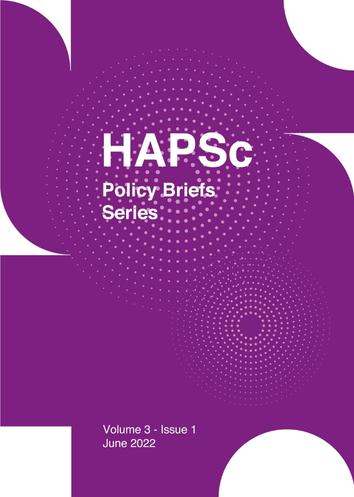EU Searching for Gatekeepers: Lebanon in European Externalized Migration Management
Abstract
Today 1 per 5 people in Lebanon is a Syrian refugee. Lebanon, largely impacted by the Syrian-refugee crisis, followed a “non-policy” and later confining policy for refugees-management. Based on the EU Global Strategy of 2016, migration is identified as principal threat for European security. Recently, EU has exerted its external migration governance in refugee-hosting countries like Lebanon. Having the Union implemented a resilience-building approach, which ended up ignoring the Lebanese system’s structural deficiencies and not accomplishing the desired outcomes, this Policy Brief recommends:
- Establishment of legal binding EU-Lebanon refugee governance agreement
- Further EIDHR funding conditional to human rights and good governance alignment
- Incentives to Lebanese private sector for refugees’ recruitment
Article Details
- Come citare
-
Andreou, A. A. (2022). EU Searching for Gatekeepers: Lebanon in European Externalized Migration Management . HAPSc Policy Briefs Series, 3(1), 182–188. https://doi.org/10.12681/hapscpbs.31007
- Sezione
- Articles

TQuesto lavoro è fornito con la licenza Creative Commons Attribuzione 4.0 Internazionale.
Authors retain copyright and grant the journal right of first publication with the work simultaneously licensed under a Creative Commons Attribution License that allows others to share the work with an acknowledgement of the work's authorship and initial publication in this journal.Downloads
I dati di download non sono ancora disponibili.
Riferimenti bibliografici
Anholt, R. & Sinatti, G. (2020). Under the guise of resilience: The EU approach to migration and forced displacement in Jordan and Lebanon. Contemporary Security Policy. Contemporary Security Policy, 41(2): 311-335.
Association Council EU- Lebanon (2016). EU-Lebanon Partnership Priorities. Available at: https://ec.europa.eu/neighbourhood-enlargement/system/files/2018-12/eu_lebanon_partnership_priorities_2016-2020_and_their_annexed_eu-lebanon_compact.pdf (Accessed: 14/04/2022).
De Bel-Air, F. (2017). Migration Profile: Lebanon.
EEAS (2021). EU support in Lebanon, Factsheet. Available at: https://eeas.europa.eu/sites/default/files/factsheet_eu_support_lebanon_en.pdf (Accessed: 14/04/2022).
European Commission (2020). European Civil Protection and Humanitarian Aid Operations, “Lebanon Factsheet”. Available at: https://ec.europa.eu/echo/where/middle-east/lebanon_en (Accessed: 14/04/2022).
Facon, C. (2020). The power–interest nexus in responses to Syrian refugee arrivals in Lebanon: Tensions and interactions between the state and the international community. Civil Society Review, 4: 49-69.
Fakhoury, T. (2020). Lebanon as a Test Case for the EU’s Logic of Governmentality in Refugee Challenges. ARIES, 20: 94.
Fakhoury, T. (2020). Refugee Governance in Crisis: The Case of the EU-Lebanon Compact. Migration Governance and Asylum Crises.
Fakhoury, T. & Stel, N. (2022). EU Engagement with Contested Refugee Returns in Lebanon: The Aftermath of Resilience. Geopolitics: 1-26.
Parisoli, F. (2018). How does the EU engage with third countries on asylum cooperation? A comparative analysis of Lebanese and Turkish cooperation with the EU. Doctoral dissertation, University of Geneva.
Pelayo, J. M. (2018). The Eu-Lebanon's Multilateral Refugee Governance. Harvard International Review, 39(3): 39-43.
Seeberg, P. (2018). EU policies concerning Lebanon and the bilateral cooperation on migration and security–new challenges calling for new institutional practices? Palgrave Communications, 4(1): 1-9.
UNHCR (2022). Lebanon “Fact Sheet,” United Nations High Commissioner for Human Rights.



